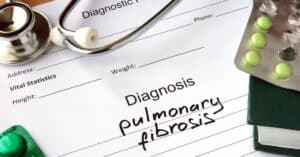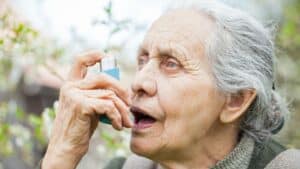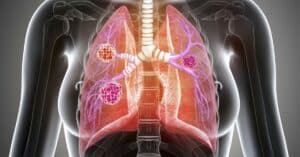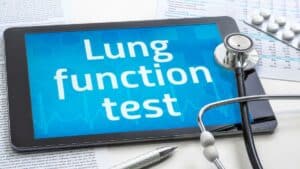Taking medications according to schedule, getting enough exercise, and following doctor’s orders are imperatives for people with chronic lung disease, but there is another, often overlooked question regarding self-care—Are You Eating a Healthy Diet?
It’s possible to think of what we eat as separate from treating lung disease. In fact, diet is as important as any other aspect of treatment.

Why Does a Healthy Diet Matter?
Diet can affect breathing. The American Lung Association confirms it. Since the body converts food to energy, it’s best to eat nutritious foods.
A balanced diet also helps maintain a healthy weight, which is especially important for people with lung disease. Many people with lung diseases are either overweight or underweight. Extra weight makes all the vital organs work harder, especially the heart and lungs.
The American Lung Association reports that COPD sufferers burn 10 times as many calories from breathing as compared to people with healthy lungs.
This is called a hyper-metabolic state, or a state of increased metabolic rate, and it can lead to anorexia and malnutrition.
Being overweight forces the heart and lungs to work harder than they should, but being underweight can sap energy and make you feel poorly. The key is balance.
4 Easy Tips for Eating a Healthy Diet

Try Smaller Meals
The old standard is three meals per day. However, newer research has shown that eating 4 to 6 small meals per day can be beneficial. Aim for about 300 calories for each of these meals.
Regular small meals may also improve breathing, since less food means less pressure on the diaphragm—in other words, less respiratory discomfort.

Aim for Balance
The three main sources of energy from food are carbohydrates, protein and fat. The body metabolizes each of these sources differently.
Metabolizing fat produces the least amount of carbon dioxide for the amount of oxygen used. For people seeking easier breathing, a diet lower in carbohydrates and higher in fat can help.
But not so fast–think healthy fats like olive oil, nuts, peanut butter and avocado. Diet plans usually have a good mix of these types of foods.
Avoid sodium, which contributes to inflammation and higher blood pressure. Incorporate vitamin D, commonly found in fatty fish such as salmon, trout, mackerel, tuna, and eel, to promote healthy bones.

Add Protein
There is more to protein than boneless, skinless chicken breast. Protein-rich foods include fish, beans, peas, nuts and seeds. Protein plays an essential role in protecting and maintaining the body.

Consult a Professional
Some medicines for lung disease have side effects and may react with nutrients. There is so much advice available on diet that many people don’t know where to begin.
We recommend speaking with your pulmonologist, who may recommend a visit to a registered dietician experienced with the dietary needs of lung disease patients.
Healthy eating is essential to disease management.
People diagnosed with degenerative lung disease have to be especially aware of their lifestyle choices, including what they eat. Try to get plenty of fruits and vegetables along with high-protein foods such as, fish, eggs, meat and soy.
Drinking plenty of water can help thin mucus and phlegm, making it easier to expel by coughing. If you can’t seem to eat enough calories, liquid supplements may help.
Of course, talk with your doctor about which foods will be best for you.
Degenerative lung diseases currently can’t be cured, but they can be effectively treated. Early diagnosis and timely treatment are crucial to helping control symptoms of lung disease.

Christine Kingsley, APRN is the Health and Wellness Director at the Lung Institute where she focuses on providing helpful online resources for people looking for information on various lung diseases, breathing exercises, and healthy lifestyle choices. She advocates for holistic care that involves working with your doctor to explore all options including traditional and alternative care while focusing on diet and exercise as proactive measures.









